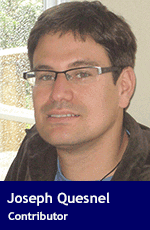 A Winnipeg-area Indigenous entrepreneur might hold the key to Indigenous peoples controlling their response to the COVID-19 pandemic.
A Winnipeg-area Indigenous entrepreneur might hold the key to Indigenous peoples controlling their response to the COVID-19 pandemic.
His experience also underscores why it’s so important to unshackle the Indigenous business community and entrepreneurial sector from restrictions imposed by the Indian Act, as well as other non-legislative barriers.
Josh Giesbrecht is president and co-founder of Exchange PPE, a new business-to-business venture that distributes personal protective equipment (PPE) to Indigenous businesses, non-governmental organizations, and First Nations within Canada and the U.S.
While the company offers its services broadly to businesses in Manitoba, its primary focus is First Nation and Native American peoples. The company is fully Indigenous-owned and is named after the historic Exchange District in Winnipeg.
“We are not a regular business-to-business company,” said Giesbrecht in a phone interview.
The Exchange PPE team also tends to the needs in Indigenous communities south of the border, where problems are much worse in many communities.
Giesbrecht has Anishinaabe ancestry and is part of the Sixties Scoop generation. State agencies took Indigenous children from their families and communities, placing them in foster homes or up for adoption.
He was raised by a Mennonite family in Steinbach, Man. but originates from the Roseau River Anishinaabe First Nation.
Previously, he was a broker in the legal cannabis industry. He conducted business in Akwesasne, Tyendinaga, and Mohawk territories in Ontario, Quebec and New York, where he witnessed First Nations closing their territories due to the COVID-19 pandemic.
In the Mohawk Territory of Tyendinaga, he saw some Indigenous ingenuity. The business community closed for four days to retool, and when they reopened most businesses had converted to a drive-through service or had shields in place. They also followed strict social distancing.
Giesbrecht refused to accept reports that there were too few PPE resources.
“There is no shortage of masks, ranging from N95 to non-medical and surgical ones,” he said. “It is heartbreaking to see government penny pinch their way through this.”
He noted the limited PPE resources the federal government provided to Indigenous communities.
A group of Saskatchewan First Nations recently asked Indigenous Services Canada to help them acquire PPE to build up their stockpiles in case of a second virus wave.
Rather than rely on Indigenous Services Canada and other government departments, Giesbrecht started his business to meet the PPE needs of these communities, especially the most remote ones.
Indigenous community members see needs and opportunities in their own surroundings and think of ideas and ways to meet them, all while thinking how this process can be monetized to make it sustainable.
A major study also discovered that Indigenous entrepreneurs think how their business opportunities can advance people in their communities.
There are many talented, ambitious and resourceful Indigenous people – like Giesbrecht. But those who live on reserves continue to face systemic obstacles to start these businesses. Even in 2020, many First Nation communities on the Prairies have very underdeveloped private sectors. They lack good business role models and mentors.
First Nations members still lack access to equity and capital. Most First Nation communities don’t have mainstream banks. Restrictions imposed by the Indian Act prevent band members from leveraging their land as collateral. Many entrepreneurs seeking access to financial institutions often have bad or no credit.
There are public institutions that seek to provide financing to First Nations, but it’s never enough. And while First Nation governments or larger enterprises can get support, individual entrepreneurs seeking to set up small or medium-sized businesses often can’t.
Many communities also lack the solid business networks needed to get them inspired and started.
And many potential Indigenous entrepreneurs don’t want to leave their communities to pursue these opportunities. They want to service their own communities.
Other barriers exist as well, such as the lack of a skilled and educated workforce, lack of reliable Internet and inferior public infrastructure.
If the federal government really wants to help Indigenous communities face COVID-19 and so many other issues, it needs to liberate on-reserve Indigenous entrepreneurs.
Joseph Quesnel is a research associate with the Frontier Centre for Public Policy.
Joseph is a Troy Media Thought Leader. Why aren’t you?
The views, opinions and positions expressed by columnists and contributors are the author’s alone. They do not inherently or expressly reflect the views, opinions and/or positions of our publication.

